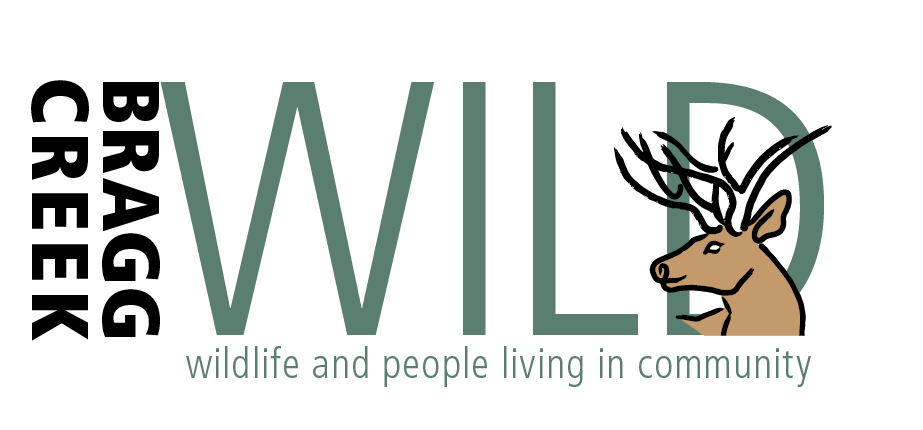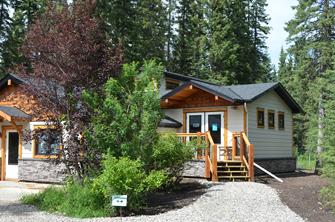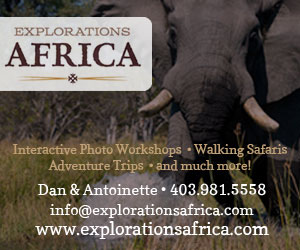Room to Roam – Rewilding A Fragmented Habitat
Obstacles To Wildlife Mobility
Our local wildlife populations – deer, moose, elk, bears, cougars – rely on an expansive, accessible landscape in which to move and migrate. Survival depends on their ability to find food sources, water, seek shelter and find suitable mates to breed with to ensure the healthy continuation of their species. With human settlement, roadways and recreation areas abounding within natural areas, we disrupt the connectivity within an established wildlife corridor. Habitat fragmentation – when manmade obstacles cause breaks in the continuity of a natural landscape and reduce the amount of available animal habitat, we create many unwelcome results. Bears and cougars are brought into closer contact with people, sometimes leading to their unfortunate deaths; bear populations lose the ability to make connections outside of their own groups, causing inbreeding and weakening in their gene pool; fencing can disrupt wildlife migration, causing injury and death to wildlife trying to navigate over them.
Healthy and productive wild lands are important to people and animals. If we reverse habitat fragmentation, we restore connections to wildlife and their habitat and create a healthy environment that enables life to adapt to a changing climate. We can get there by undertaking useful practices in our own backyards.
Rewilding In Our Own Backyard – Protect, Connect and Recover Keep Pets in Check
Respect local leash laws. Dogs can harass and kill wildlife. Cats outdoors should have a bell around their neck to warn birds of their presence. Cats are credited with killing MILLIONS of songbirds every year.
Keep Control of Your Garbage
Regular checks of your outdoor space can uncover blown garbage bags and other refuse that can be ingested by wildlife living in or around your property.
Utilize Native Plants
If you maintain native species, a variety of animals will utilize them for food and shelter. Non-fruit bearing, indigenous trees are favorable with some open site areas on your property available to wildlife as corridors to wild, forested areas.
Avoid Using Pesticides and Herbicides
Look for less-harmful ways to control weeds and insects or choose to live with them; rewilding includes letting crabgrass, dandelions and wasps live undisturbed in the environment.
Perform Property Cleanup with Local Wildlife Dwellers in Mind
Piles of brush are used by rabbits, birds and rodents for cover. Standing dead trees not deemed hazardous to people or property are worth preserving to host insects and fungi which provide food for other creatures. Insect holes are utilized by cavity-nesters like woodpeckers and squirrels.
Allow a Portion of Your Property to Rewild
Redesignate some of your property back to nature. Don’t mow, weed or disturb the area and allow it to grow back into a natural environment. You will open a connection to existing natural corridors to benefit local wildlife, replenish native soils and plants and contribute to your own well-being.
Fencing – To Use It or Remove It
Fences are useful to safeguard our pets, deter trespassing, prevent wildlife access to vegetable gardens and serve as property boundaries. Employ wildlife-friendly fencing such as wooden slat boards to allow wildlife to safely jump over or crawl under them. If you don’t need a fence, don’t build one. Remove old and hazardous fencing materials like barbed wire and create a new, safe passageway for wildlife.
Protected and Connected Habitats Matter
Resources cited here offer ideas and insights into habitat fragmentation and solutions. Conservationists, scientists, nature enthusiasts and landowners alike can be a part of the solution and allow people to coexist in the wild.
Excerpts used in this article include Y2Y with Bird Studies Canada, Environment Canada and the Canadian Wildlife Federation; Wiley Conservation Science with Practice Contributed Paper by Josiane Segar and Aidan Keane; How to Rewild Your Garden by Anne von Osterhausen; hww.ca; Dave Foreman, Rewilding Earth Podcast.
Bragg Creek Wild – www.braggcreekwild.ca braggcreekwild@gmail.com – 403-200-9961
People and wildlife living in community


























